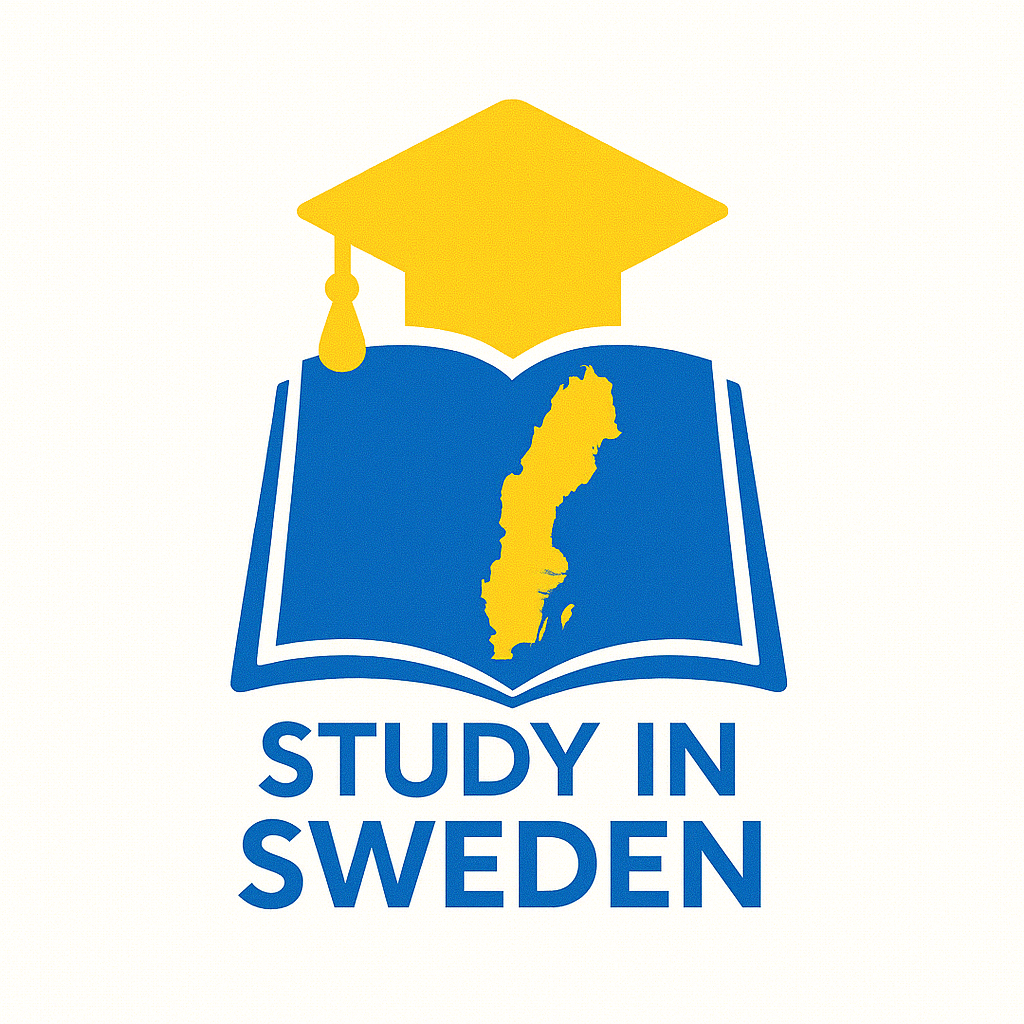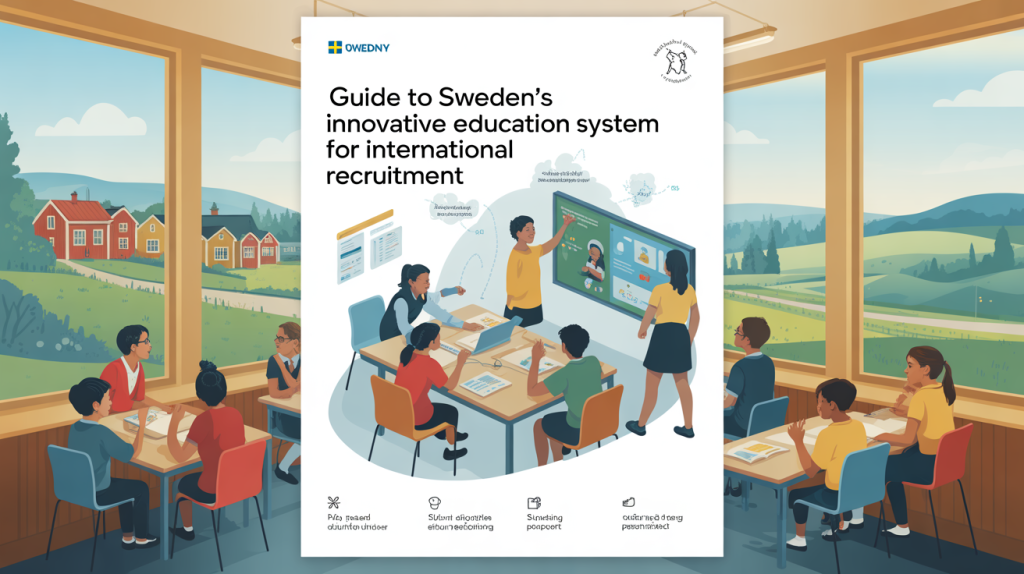A Guide to Sweden’s Innovative Education System: Insights for International Recruitment and Higher Education Professionals
Higher Education in Sweden: Internationally Recognized and Student-Centered
Educational Institutions in Sweden
Implications for International Student Recruitment
How Study in Sweden Supports International Recruitment and Admissions
Best Practices for Engaging International Students Interested in Sweden
Conclusion
Take the Next Step with Study in Sweden
Understanding Sweden’s Innovative Education System
Sweden’s education system is decentralized and goal-oriented. While the national government sets frameworks and goals, municipalities are responsible for administration and implementation, ensuring education is responsive and community-driven. Importantly, all education from preschool through higher education is publicly funded and free of charge, promoting equal access regardless of students’ backgrounds.
Structure of the Swedish School System
The Swedish education system is divided into several stages:
Compulsory Education (Ages 6–15)
Compulsory education in Sweden covers ten years, beginning with Förskoleklass (preschool class) at age six, followed by primary and lower secondary education:
- Lågstadiet (Years 1-3): Ages 7-9
- Mellanstadiet (Years 4-6): Ages 10-12
- Högstadiet (Years 7-9): Ages 13-15
During this stage, students follow a broad curriculum covering 16 subjects, including Swedish, English, mathematics, sciences, arts, and physical education. The curriculum fosters foundational skills, critical thinking, and creativity essential for lifelong learning.
Upper Secondary Education (Gymnasieskola)
After compulsory schooling, students can enter upper secondary education, offered through various academic and vocational programs. These programs prepare students either for university studies or direct entry into the workforce. Upper secondary schools are managed by municipalities, offering diverse pathways tailored to student interests and market needs.
Higher Education in Sweden: Internationally Recognized and Student-Centered
Sweden’s higher education system aligns with the European Higher Education Area (EHEA), following the standardized three-cycle degree structure—bachelor’s, master’s, and doctoral levels. This alignment guarantees international transparency and recognition of qualifications.
Academic Calendar and Degree Structure
- Academic Year: Divided into two semesters—Autumn (August to mid-January) and Spring (mid-January to early June).
- Degree Programs: Universities and university colleges offer a wide range of programs adhering to European standards, ensuring quality and global recognition.
This flexible academic calendar supports international student mobility and integration, accommodating varying visa and application timelines.
Student-Centered Learning Philosophy
Sweden’s education system emphasizes student autonomy and active participation. Students can freely select schools, encouraging them to tailor their education to individual goals. This approach supports diversity and promotes self-directed learning—valuable attributes for students and employers alike.
Educational Institutions in Sweden
Sweden’s educational landscape comprises:
- Municipal Schools: Publicly operated schools providing free education following national curricula.
- Grant-Aided Independent Schools (Fristående Skolor): Privately managed but publicly funded schools adhering to the same curricula as municipal schools.
- State Universities (Universitet) and University Colleges (Högskolor): Providers of higher education and research opportunities.
- Private Institutions: Some receive state subsidies while offering specialized training.
The diverse institutional landscape allows international students to find programs that match their academic ambitions and career aspirations.
Implications for International Student Recruitment
Sweden’s innovative education system presents unique opportunities and considerations for international recruitment professionals and university admissions teams:
Access and Equity as Key Recruitment Messages
Advertising Sweden’s fully funded education system with no tuition fees (for EU/EEA students and many scholarships for non-EU students) enhances its appeal globally. Highlighting Sweden’s commitment to accessibility and inclusivity strengthens brand perception.
Streamlined Academic Progression
The structured progression from compulsory education to vocational upper secondary studies and internationally recognized higher education pathways enables recruiters to advise prospective students on clear academic and career trajectories.
Emphasizing Student Autonomy
Recruiters and admissions teams should emphasize the student-centered philosophy that allows learners to shape their educational experience, fostering independence and adaptability.
How Study in Sweden Supports International Recruitment and Admissions
At Study in Sweden, we leverage deep knowledge of Sweden’s education system to assist international recruiters, university admissions, and partner agencies in:
- Efficient Recruitment Campaigns: Customizable outreach that aligns with Sweden’s educational story and values.
- Applicant and Enrollment Automation: Streamlining applications, document verification, and admissions workflows to reduce manual effort.
- Data-Driven Insights: Analytics on student interests, program popularity, and regional recruitment effectiveness.
- Partnership Facilitation: Connecting universities with recruitment agencies and stakeholders for collaborative initiatives.
Explore how our international recruitment services and digital solutions for education institutions drive student engagement and enrollment success.
Best Practices for Engaging International Students Interested in Sweden
To maximize recruitment outcomes in the context of Sweden’s education system, professionals should focus on:
- Clear Communication of Sweden’s Educational Strengths: Including innovation, free education, and global recognition.
- Highlighting Flexible and Student-Centered Learning: Showcasing the freedom students have to tailor their studies.
- Supporting Applicants Through Complex Admission Processes: Utilizing technology platforms for application tracking and guidance.
- Leveraging Local Partnerships: Engaging municipal schools and universities to offer diverse pathways and support services.
Conclusion
Sweden’s innovative education system provides an outstanding environment for international students, characterized by high-quality instruction, accessibility, and a strong emphasis on student autonomy. For recruiters, admissions teams, and educational agencies, it offers unique opportunities to connect with motivated students and facilitate their academic journeys.
At Study in Sweden, we combine authoritative knowledge of Sweden’s education landscape with advanced recruitment expertise to support partners in achieving their international student engagement goals.
Take the Next Step with Study in Sweden
Ready to expand your reach and attract high-caliber international students to Sweden? Contact us today to learn how our tailored recruitment solutions can empower your team and enhance your student recruitment success.

